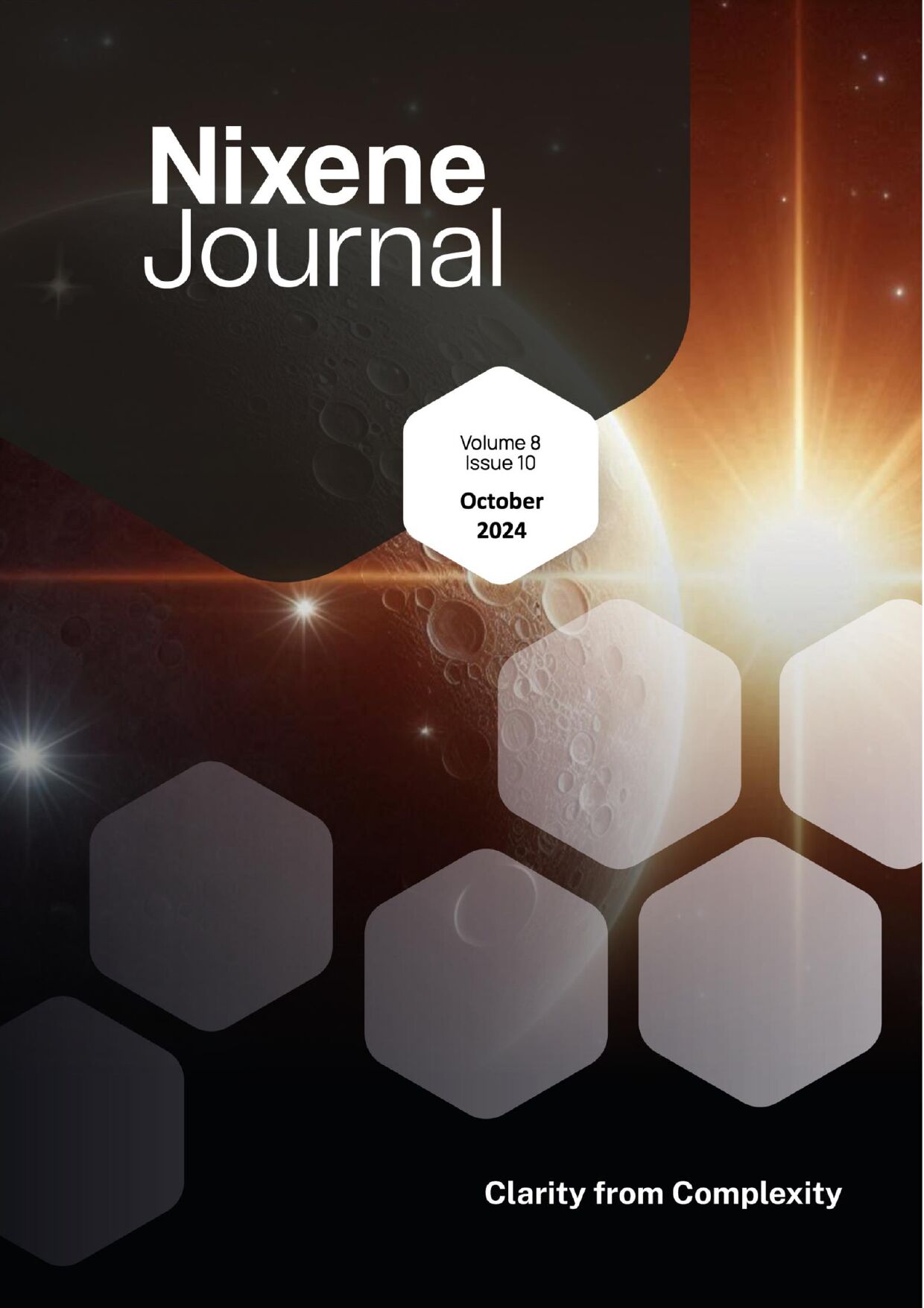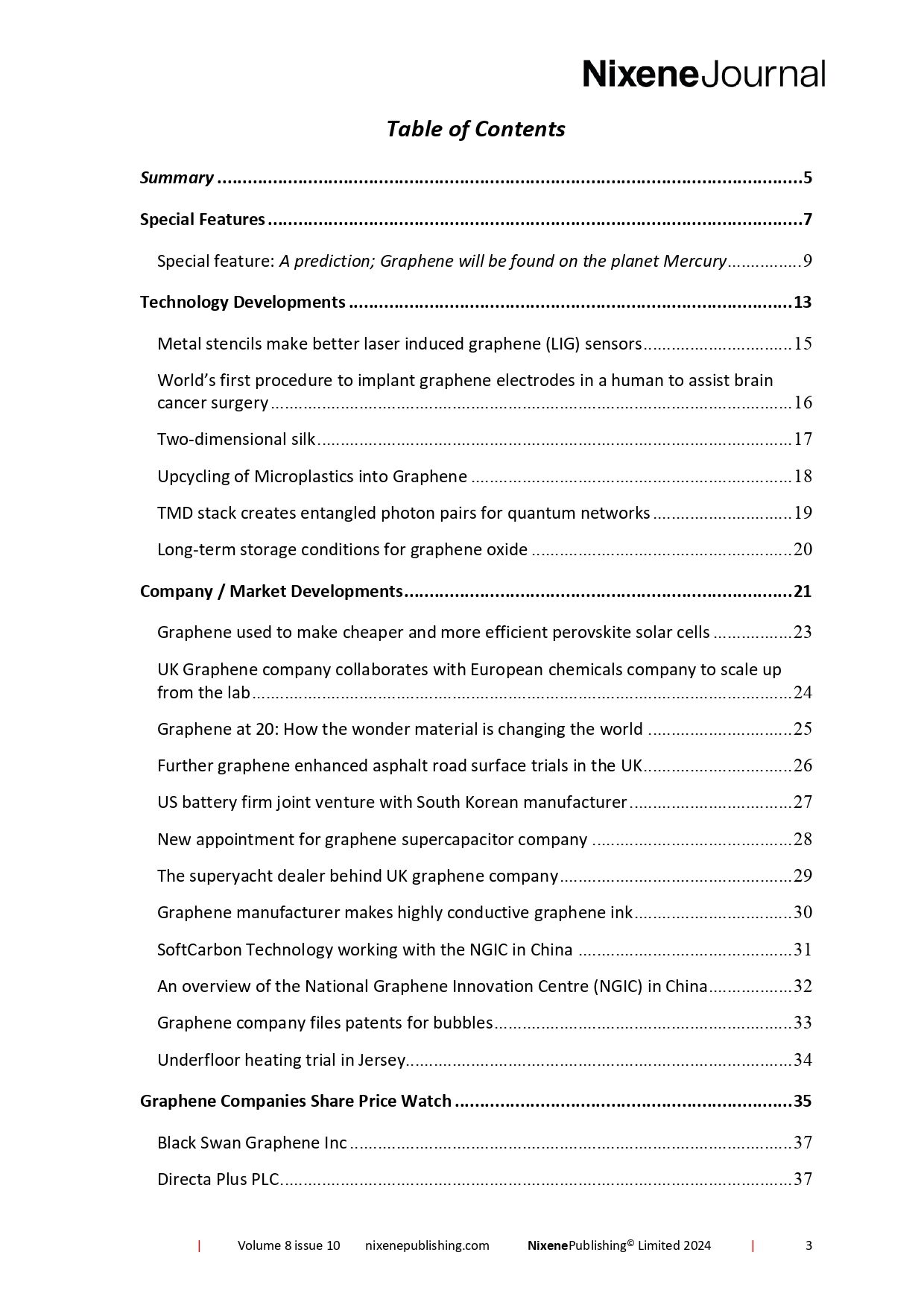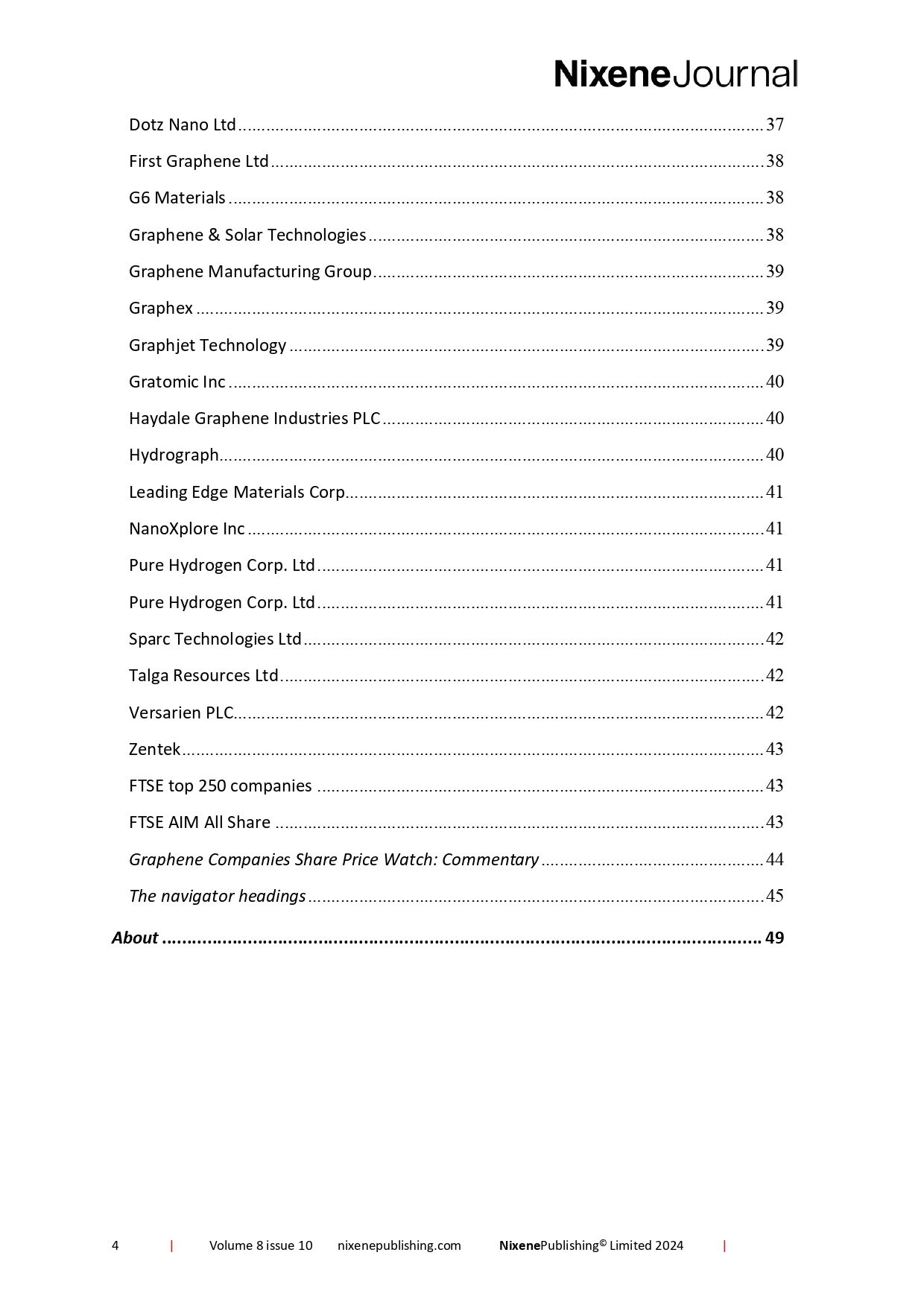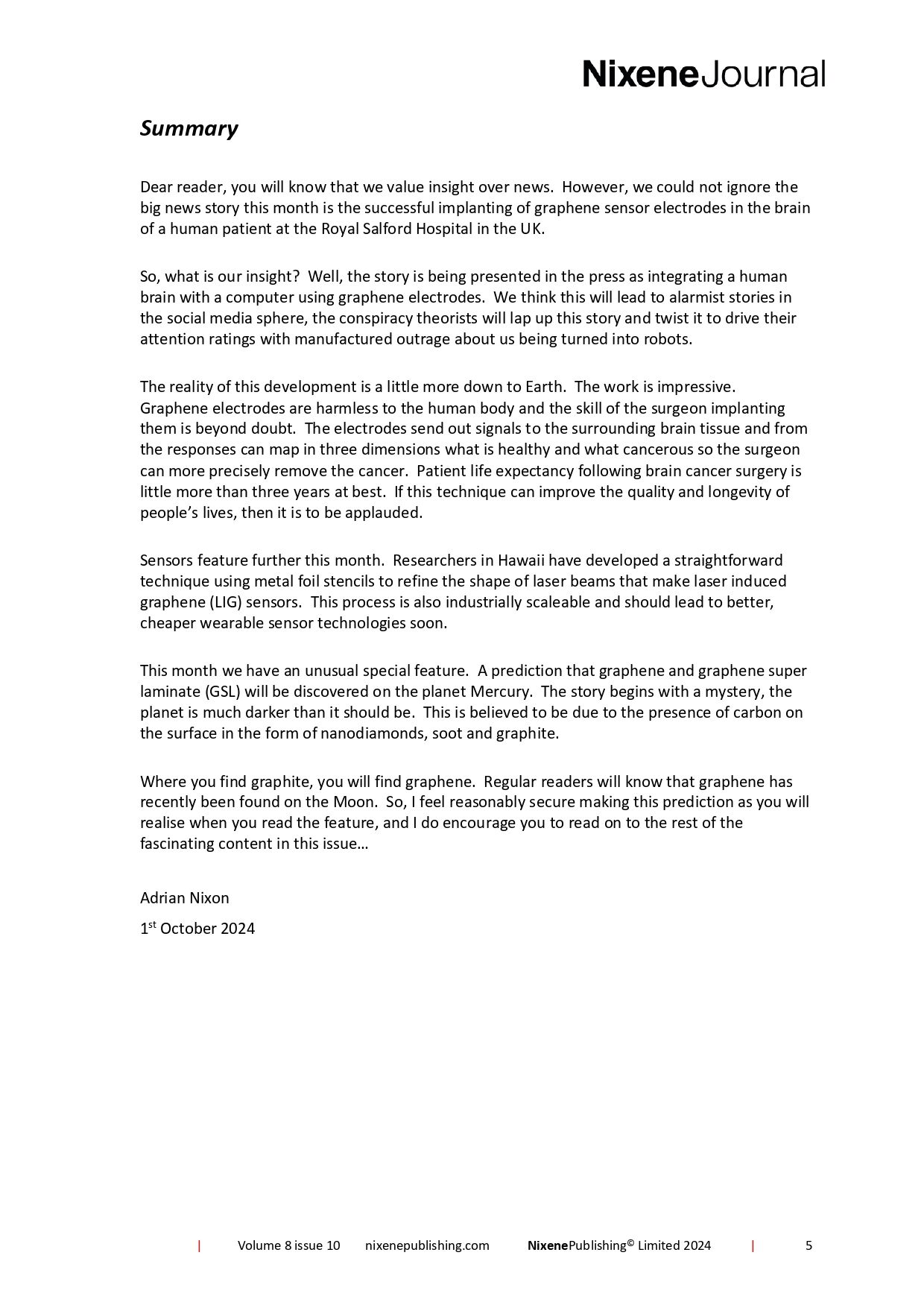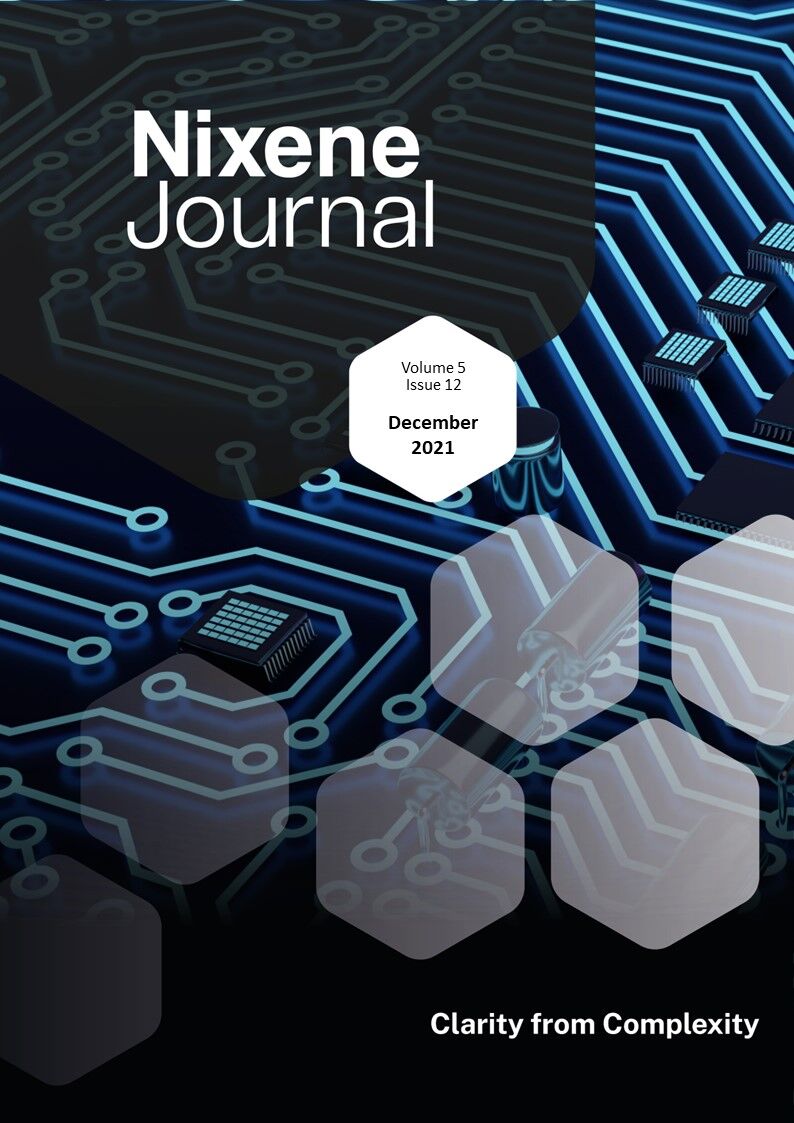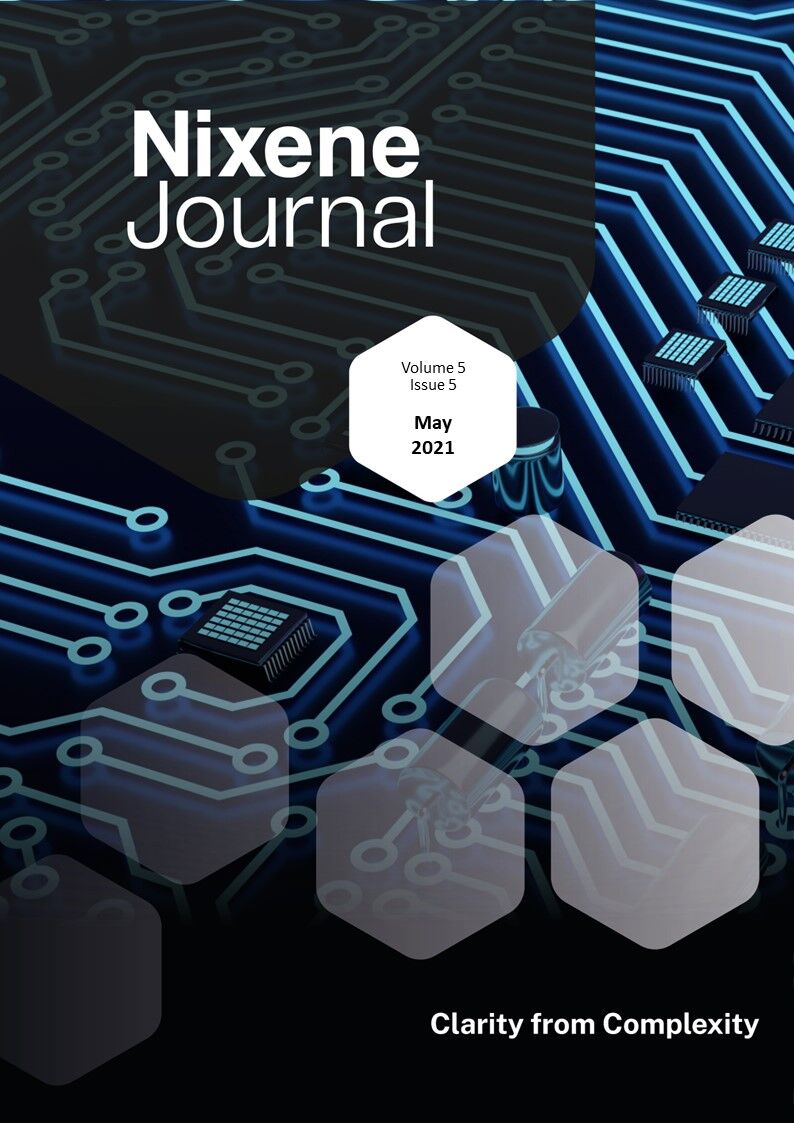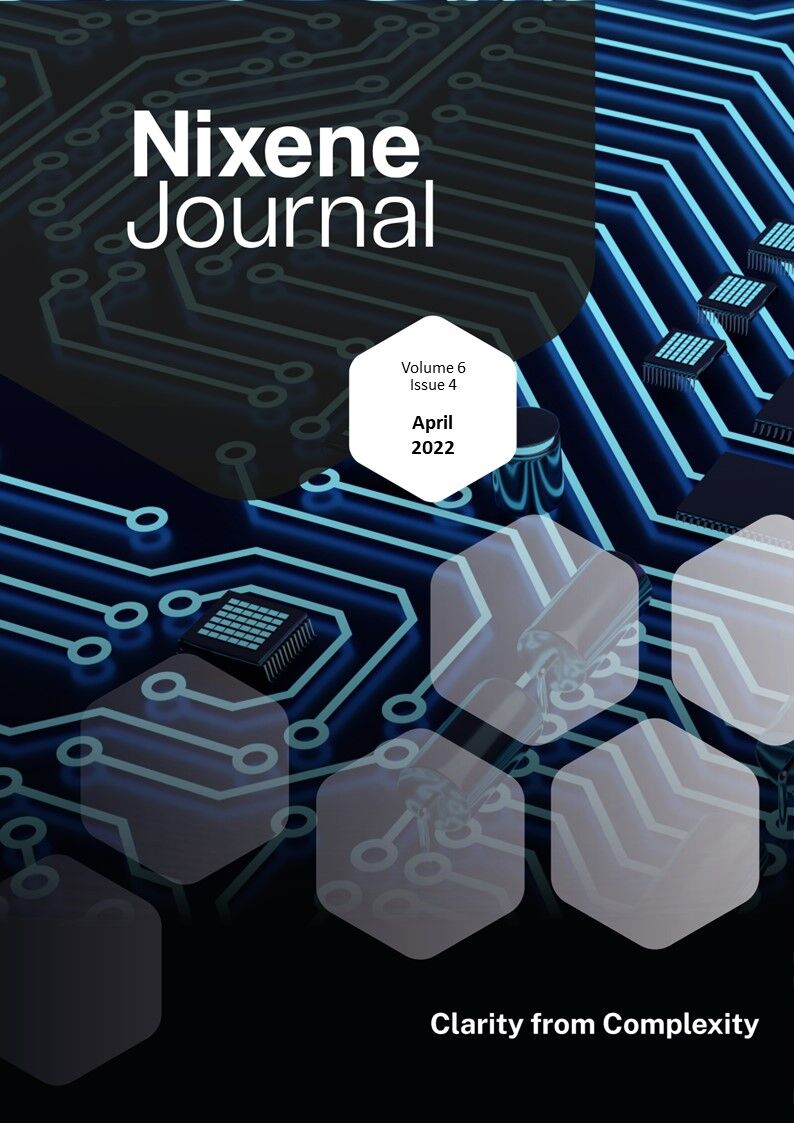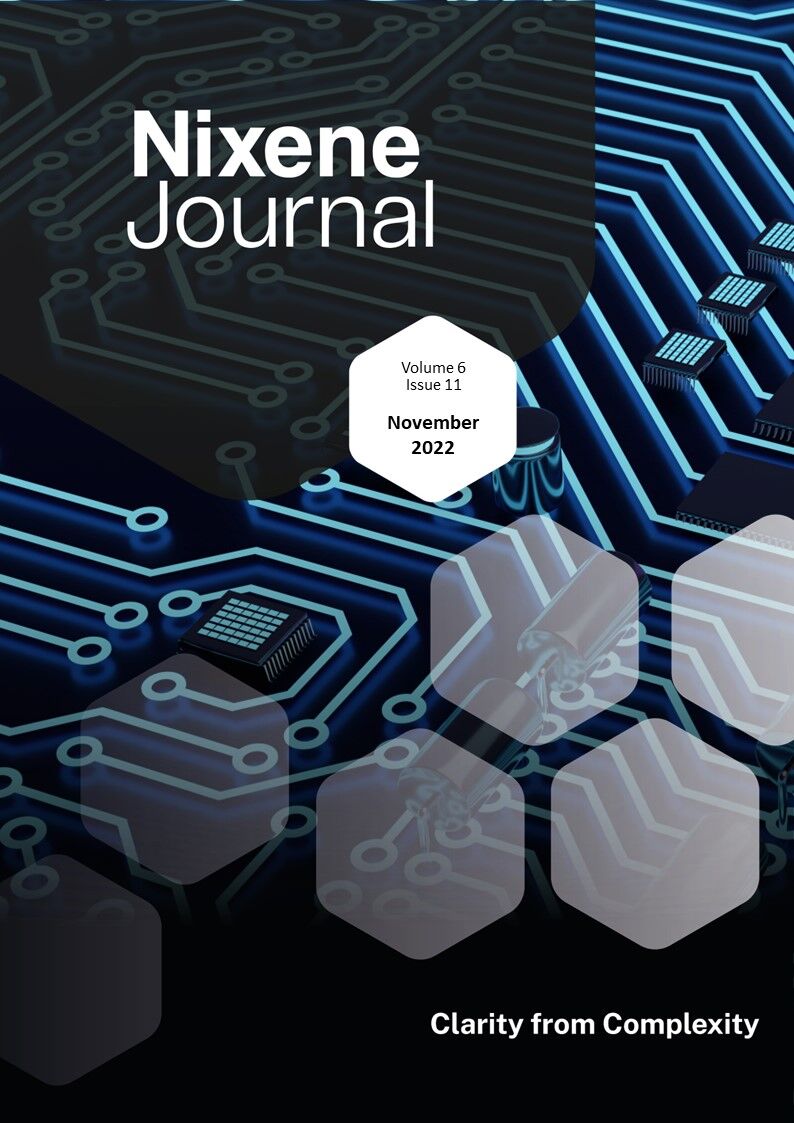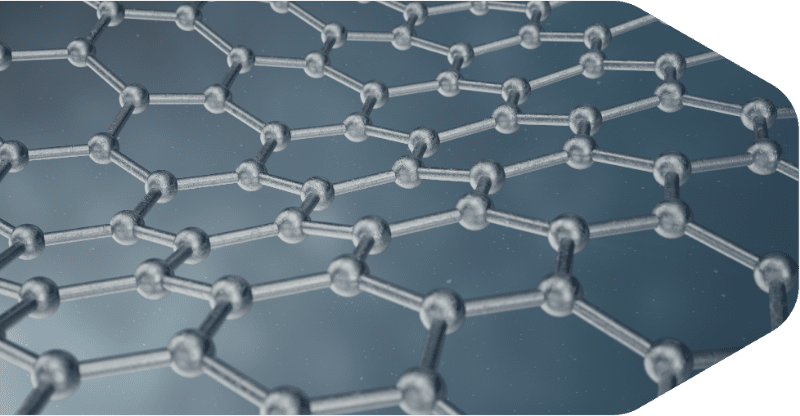Description
Dear reader, you will know that we value insight over news. However, we could not ignore the big news story this month is the successful implanting of graphene sensor electrodes in the brain of a human patient at the Royal Salford Hospital in the UK.
So, what is our insight? Well, the story is being presented in the press as integrating a human brain with a computer using graphene electrodes. We think this will lead to alarmist stories in the social media sphere, the conspiracy theorists will lap up this story and twist it to drive their attention ratings with manufactured outrage about us being turned into robots.
The reality of this development is a little more down to Earth. The work is impressive. Graphene electrodes are harmless to the human body and the skill of the surgeon implanting them is beyond doubt. The electrodes send out signals to the surrounding brain tissue and from the responses can map in three dimensions what is healthy and what cancerous so the surgeon can more precisely remove the cancer. Patient life expectancy following brain cancer surgery is little more than three years at best. If this technique can improve the quality and longevity of people’s lives, then it is to be applauded.
Sensors feature further this month. Researchers in Hawaii have developed a straightforward technique using metal foil stencils to refine the shape of laser beams that make laser induced graphene (LIG) sensors. This process is also industrially scalable and should lead to better, cheaper wearable sensor technologies soon.
This month we have an unusual special feature. A prediction that graphene and graphene super laminate (GSL) will be discovered on the planet Mercury. The story begins with a mystery, the planet is much darker than it should be. This is believed to be due to the presence of carbon on the surface in the form of nanodiamonds, soot and graphite.
Where you find graphite, you will find graphene. Regular readers will know that graphene has recently been found on the Moon. So, I feel reasonably secure making this prediction as you will realise when you read the feature, and I do encourage you to read on to the rest of the fascinating content in this issue…
Adrian Nixon
1st October 2024

